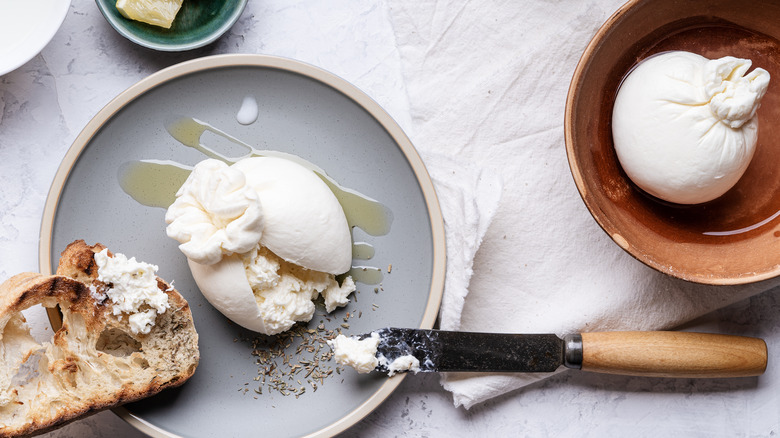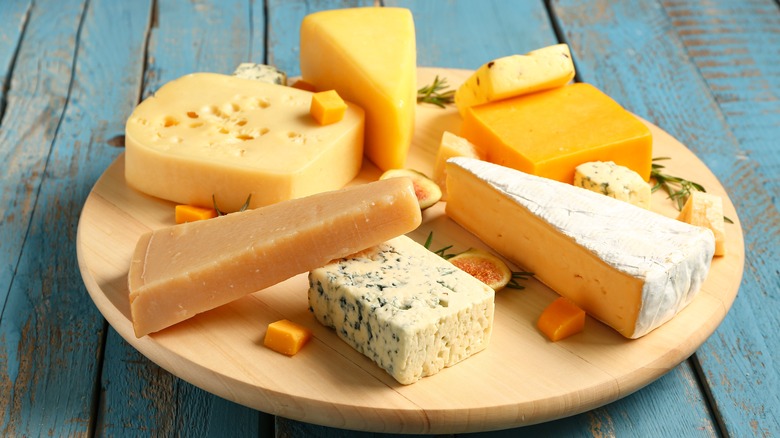Why Soft Cheeses Are The Worst For Those With Lactose Intolerance
Ah, the ever-complicated relationship between delicious cheese and someone dealing with lactose intolerance. If you're lucky enough to not know what that is, lactose intolerance is the dietary inability to break down lactose, a sugar found in most dairy products, and it can cause some pretty unpleasant side effects. Though there are varying degrees of sensitivity, at times it can feel like a game of roulette when it comes to selecting what to eat. Luckily, when it comes to cheese specifically, there are some guardrails to take into account. If lactose is an issue for you, dietitians say it's best to stick to hard, aged cheeses. But why?
The higher level of lactose a dairy product contains, the harder it will be for someone with sensitivity or intolerance to digest. Soft cheeses tend to have the highest lactose content of any other type of cheese. Included in this list are highly processed options, like American or Velveeta, as well as actual soft-textured cheeses, like ricotta or cottage cheese. For example, a hard, aged cheese like gouda has a lactose content anywhere between 0 and 2.2%, while a soft cheese like pasteurized American can contain nearly 14.2% lactose. In terms of your tummy, sticking to that lower percentage will absolutely make all the difference.
The best cheeses to choose if you are lactose intolerant
With the rise in popularity of charcuterie and cheese boards, it can be difficult to navigate what to pick off a platter when you're inevitably grazing at a party. Luckily, lactose-friendly options are typically the star of cheese boards. Despite their creamy texture, Brie and camembert are surprisingly great picks. Because of their age, the bacteria in these cheeses have had time to eat much of the lactose. Similarly, sharp cheddar and gruyère are hard, aged cheeses you can feel safe plucking from a cheese board.
When it comes to everyday hard cheeses to add into your meals, there are also loads of options. Pecorino Romano is practically lactose-free and a great addition to any pasta or salad. Plenty of top melting cheeses are also low in lactose, like gouda and provolone. Meanwhile, tried and true favorites like cheddar and Swiss are great for sandwiches and, even better, very low in lactose. And for a snack, it's exciting to note that the ever-popular Babybel brand of cheese is lactose free, as the lactose is eliminated during the draining and fermentation process.
But, like everything else in life, moderation is key. Even products with scarce traces of lactose can add up. According to the NIH, someone with lactose intolerance can typically tolerate up to 24 grams of lactose over the course of a day. Bearing that in mind, choose your cheese wisely.

